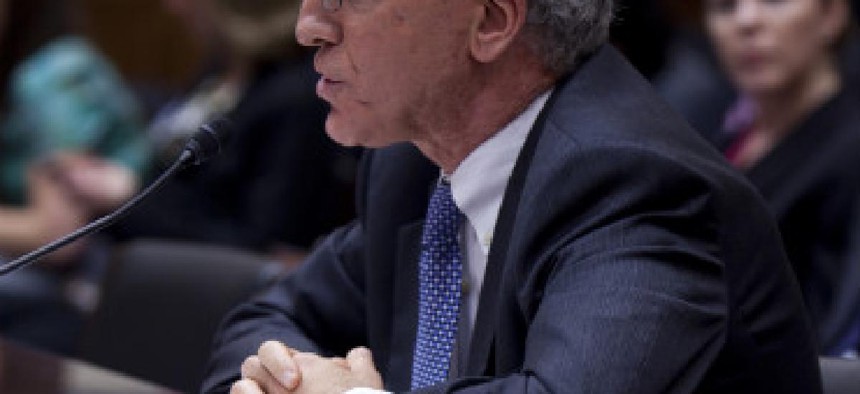Acquisition officials still wary of talking to industry

As Congress assembles a new IT procurement bill, the former head of the OFPP urges easing tensions between agencies and companies as his 'myth-busting' campaign sought to do.

Former OFPP Administrator Dan Gordon. (File photo)
A new IT acquisition bill could ease some of the fears federal procurement officials have about interactions with industry, the fears that the Office of Federal Procurement Policy's "myth-busting' campaign sought to address, according to Dan Gordon, former OFPP administrator and now associate dean of government procurement law studies at George Washington University.
Speaking to the House Oversight and Government Reform Committee, Gordon said federal acquisition employees are still very wary of talking to industry. They fear overstepping boundaries and causing problems inside their agencies, such as bid protests, when they are already "scared of getting in trouble." In February 2011, Gordon, as head of the OFPP, launched an effort to make clear what acquisition officials are allowed to do, referring to it in a memo as "myth-busting."
The committee is putting together the Federal IT Acquisition Reform Act. Several members of Congress, led by Committee Chairman Rep. Darrell Issa (R-Calif.), released a draft proposal to the community in September to gather feedback about its provisions. A hearing Feb. 27 delved into the issues of the bill, which brought to light the concerns about agencies’ communication with industry and program management.
While at OFPP, Gordon pushed for more open lines of communication between the two sides of the procurement process: the buyers and the sellers.
The campaign sought to reassure federal employees that it is OK to talk to companies early in a solicitation. The campaign also clarified other misconceptions among government and industry employees that hinder the procurement process, such as the notion that industry days aren't useful. Some officials believed that limiting their communication with industry would help prevent protests when in fact it can make them more likely while also depriving the government of potentially useful information.
Gordon told the committee that fear of talking to potential contractors has led in recent years to poorly defined requirements, which can handicap a project throughout the length of a contract.
"When I used to ask contracting officers what's causing this, the answer I often got was, 'We were afraid to talk to industry when we were writing the solicitation initially,'" Gordon said.
NEXT STORY: DOD to start filing more contract information


